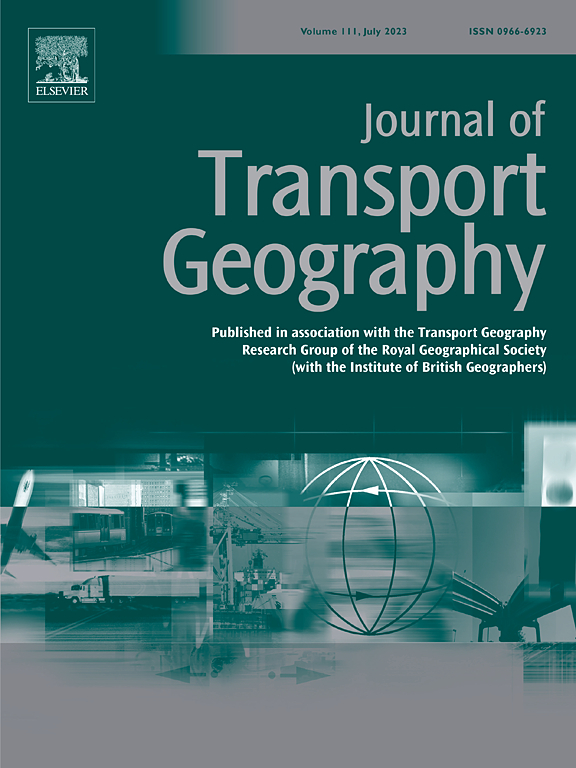Why they are experiencing long-time commuting: A gendered analysis across occupational, family, and spatial dimensions
IF 5.7
2区 工程技术
Q1 ECONOMICS
引用次数: 0
Abstract
The growing job-residence imbalance has led to an increasing concern about long-time commuting. Existing studies have made great efforts to explain the influencing mechanism, but a perspective based on the gender difference has not been fully explored before. Moreover, research on causality in long-time commuting has been limited. This study aims to address these gaps by using 2019 Household Travel Survey data from Shanghai, combined with census and land use data at the sub-district level. The analysis of variance (ANOVA) and causal model are used to explore gender differences in long-time commuting behavior, as well as the causal effects of individual occupations, family stages, and spatial types on these differences. Our results confirm that gender differences in long-time commuting are significant at individual, family, and spatial levels. The analysis indicates that high-income white-collar workers have a positive causal effect on the choice of long-time commuting among commuters, although this effect is smaller for women. The impact of different family life cycles on long-time commuting among women varies significantly, with the formation and expansion stages showing negative impacts, and stabilizing into a positive impact during the stability stage. The findings at the spatial level further indicate that women's disadvantaged position in urban spatial competition may increase their likelihood of engaging in long-time commuting to obtain appropriate employment opportunities. These findings demonstrate the gender differences in long-time commuting across different levels, highlighting the importance of inclusive and comprehensive job-housing balance policies for promoting gender equality and reducing long-time commuting.
为什么他们要经历长时间的通勤:跨职业、家庭和空间维度的性别分析
日益严重的工作居住不平衡导致人们越来越关注长时间通勤。现有的研究对其影响机制进行了大量的解释,但基于性别差异的视角尚未得到充分的探索。此外,对长时间通勤因果关系的研究还很有限。本研究旨在通过使用2019年上海家庭旅游调查数据,结合街道层面的人口普查和土地利用数据来解决这些差距。采用方差分析和因果模型探讨了长时间通勤行为的性别差异,以及个体职业、家庭阶段和空间类型对长时间通勤行为的因果影响。研究结果证实,长时间通勤在个体、家庭和空间层面上存在显著的性别差异。分析表明,高收入白领对通勤者选择长时间通勤有积极的因果影响,尽管这种影响对女性的影响较小。不同家庭生命周期对女性长时间通勤的影响差异显著,在形成和扩展阶段表现为负向影响,在稳定阶段稳定为正向影响。空间层面的研究结果进一步表明,女性在城市空间竞争中的弱势地位可能会增加她们从事长时间通勤以获得适当就业机会的可能性。研究结果表明,长时间通勤在不同层次上存在性别差异,强调了包容性和综合性职住平衡政策对于促进性别平等和减少长时间通勤的重要性。
本文章由计算机程序翻译,如有差异,请以英文原文为准。
求助全文
约1分钟内获得全文
求助全文
来源期刊

Journal of Transport Geography
Multiple-
CiteScore
11.50
自引率
11.50%
发文量
197
期刊介绍:
A major resurgence has occurred in transport geography in the wake of political and policy changes, huge transport infrastructure projects and responses to urban traffic congestion. The Journal of Transport Geography provides a central focus for developments in this rapidly expanding sub-discipline.
 求助内容:
求助内容: 应助结果提醒方式:
应助结果提醒方式:


